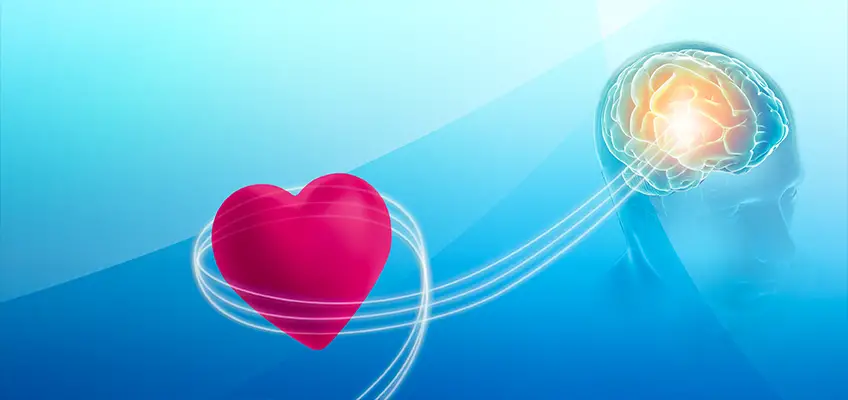The word “heart” is an anagram for the word “earth”. Hence, the phrase “home is where the heart is”.
Did you know that the human heart is the organ that generates the strongest electromagnetic field of any organ of the human body? In fact, the electromagnetic field of your heart can be measured up to a few feet away from your body. Furthermore, this energy field changes in relation to your emotions. One thing you should know about electromagnetic field is that every organ and cell in your body generate an energy field.

Because the heart generates the strongest electromagnetic field, the information stored in its electromagnetic field affects every organ and cell in your body. Could this be why the heart is the first organ to function in a fetus? Besides generating the strongest electromagnetic field, the heart has an intelligence of its own, which is why certain neurocardiologists refer to it as the heart-brain or the fifth brain.
According to neurocardiologists, the heart is not only made of muscle cells but also neurons. Researchers at the Institute of HeartMath have done experiments proving that the heart’s role is not limited to just pumping blood. They believe it has intelligence and plays a major role in the perception of reality.
Here is an excerpt from my book Staradigm that talks about the deeper roles of the heart:
The heart is one of the most important organs in the human body, because it is one of the main mediums for connecting us to each other and the Universe. Conventional science has taught us that the main role of the heart is to pump blood to all the systems of the body. This definition of the heart is not very accurate. Besides pumping blood, the heart also has an intelligence of its own.
According to neurocardiologists, 60 to 65 percent of heart cells are neuron cells, not muscle cells.1This discovery has helped them to develop experiments that have proved the heart works similar to the brain and in some ways is even superior to the brain. This may be the reason why the heart is the first organ to function after conception. Within about 20 days after conception the heart starts to function, but the brain does not function until after roughly 90 days. This information tells us that the brain is secondary to the heart.
The Heart, Brain, and Feelings
The brain and the heart are sometimes said to work in opposition. We are constantly trying to determine whether to place more emphasis on our thoughts or feelings. Rational people would say that the mind is the key to keeping us out of trouble, as the mind thinks in terms of what has the most payoff and is quite possible the safest or most calculated risk.

The heart on the other hand allows us to feel what is best at an internal level that connects toour intuition. Operating with either one of these alone, only the mind or the heart, can sometimes lead us into trouble. The mind can be afraid to seek happiness outside of the comfort zone, and the heart sometimes urges decisions that are unknown and risky, but using the two in balance can bring great clarity to a person.
Follow the heart is a common phrase that is tossed around, but it is not necessarily easy to enact. Follow the heart means letting deep feelings draw us one way or another without a logical answer or obvious reasoning. This organ provides a feeling of intuition or guidance, but we must have the contentment and the confidence to understand when it is pushing us in a direction, and then act upon this with complete faith in the outcome. Our feelings are what help us to understand the world beyond logic and therefore they are the keys to understanding the spiritual aspects of ourselves.
The Intelligence of the Heart
Some researchers and neurocardiologists are pushing the idea that the heart can actually act like another brain, helping to guide us with a different form of intelligence. Many physiological studies are currently being done regarding the interconnection of the heart and the brain, and why certain sensations and feelings are experienced at the level of the heart. Generally, love and certain emotional states are felt at the heart level, producing different physiological reactions of the heart.

Heartbeats have been found to be affected by inner states and emotions, including disorder in heart rhythms when we are experiencing stress or negative emotion. Conversely, when we are feeling positively, the heart rhythms are more cohesive and beat more regularly and steadily.
The nervous system of the heart contains roughly 40,000 neurons or sensory neurites. One of its roles is to monitor the heart’s hormones, neurochemicals, heart rate, and pressure information. The information of how these chemicals behave is also sent to the brain. The heart and brain are always communicating through the vagus nerve system and the electromagnetic field of the body. It is through this dynamic communication process that the consciousness of the heart can change how the brain process information. This process can also affect how energy flows in the body.
These findings indicate that the heart works with the brain and body, including the amygdala, to process emotions and incorporate emotional memories. The amygdala is the part of the brain that assists us in making decisions about incoming information and processing them based on our past experiences. This shows a link between the emotions and feelings and the actual brain and body physiology.
Other mental attitudes and stress also affect the body and our overall health, and these issues can be linked to the heart as well. Recent scientific research has determined that the emotions of anger, anxiety, and other negative feelings can significantly increase the risk of heart disease. Therefore, stressful situations and high anxiety levels negatively affect the heart as an organ.
Connecting the brain and the heart as its own emotional processing center is a topic that many researchers are focusing on. It has been shown that emotions experienced mentally will also manifest physically in the body, and feelings can affect the rhythms and beating of the heart. The best way to maintain a healthy heart is to not only eat a healthy diet, but also incorporate meditation techniques to balance the energy of the heart and brain.
Why the Heart Holds the key to World Peace
The heart helps us to understand the world through feelings. It allows us to understand our reality in a universal kind of way, giving us universal characteristics. This biological electromagnetic field generator allows us to understand each other at the emotional level and beyond, giving us a sense of connection to all things. This emotional connection is what creates bonding between individuals.
When we learn how to think with our hearts, it becomes easier for us to understand others and live in harmony with them. For these reasons, the heart holds the key to uniting humanity and achieving world peace.
Mysteries of the Heart
Source : http://themindunleashed.org/2016/02/how-the-human-heart-functions-as-a-second-brain-2.html

